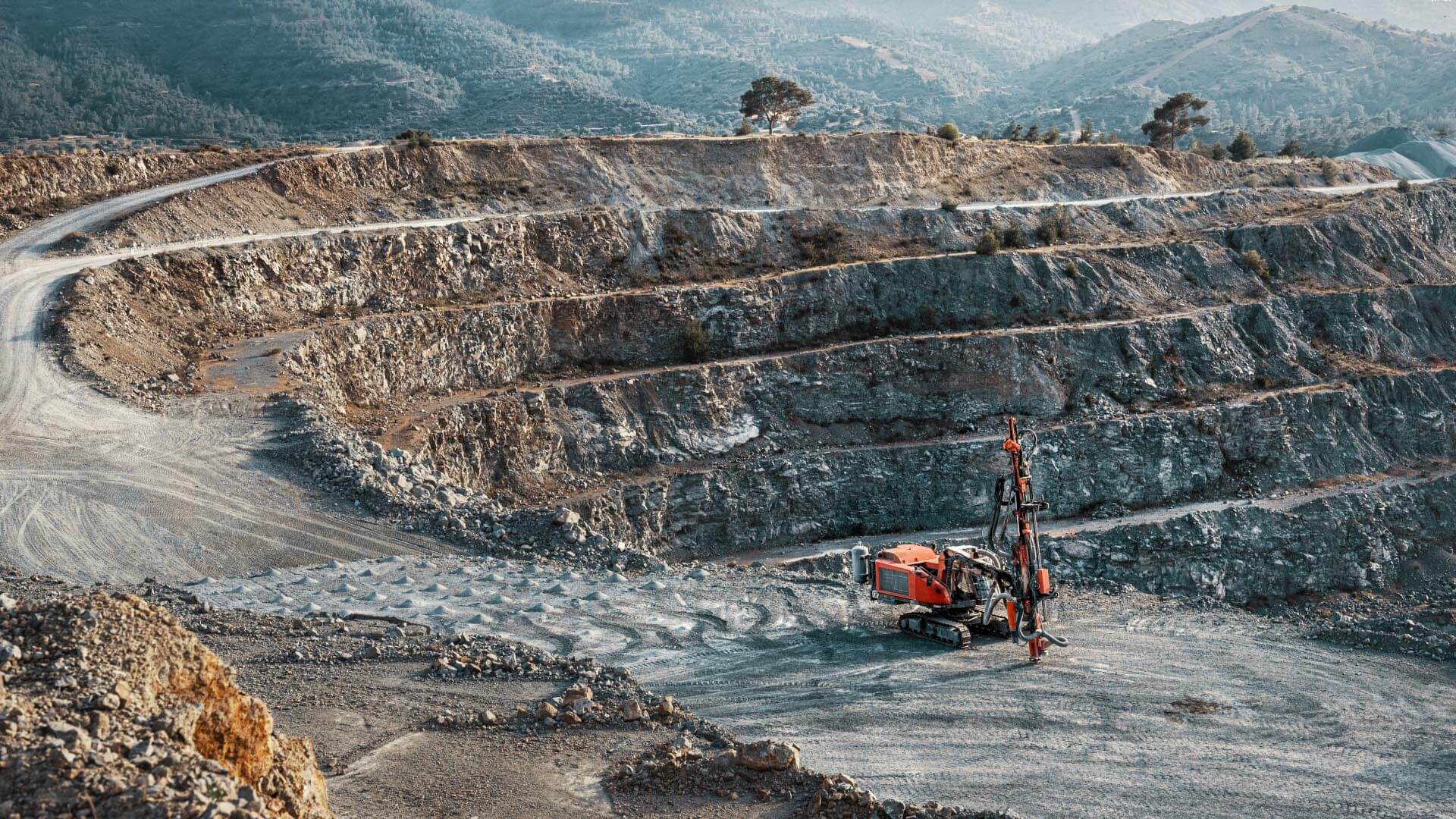In mining operations, reliable and efficient pumping systems are essential for the smooth extraction and processing of valuable minerals. Pumps play a vital role in dewatering, transporting slurry, and handling chemicals, all of which are critical processes for continuous operations. Mining pumping applications are uniquely demanding, requiring systems designed for durability, safety, and efficiency. This article will explore the significance of reliability, safety, and industrial efficiency solutions in mining pumping systems, highlighting the key features that make these systems essential in mining environments.
The Importance of Reliability in Mining Pumping Applications
In mining pumping applications, reliability is crucial to maintaining continuous operations and avoiding costly downtime. When a pump fails, production can grind to a halt, resulting in significant financial losses and operational inefficiencies. Furthermore, pump failures in hazardous environments pose serious safety risks, making the reliability of equipment even more critical. Ensuring chemical pumping reliability is equally important, as it ensures that pumps can handle corrosive chemicals used in mining without frequent breakdowns.
Mining pumping applications are responsible for several critical functions, including the removal of water from mine shafts, the transportation of abrasive slurries, and the handling of chemical solutions in ore processing. These systems often operate around the clock, and pumps must withstand high levels of wear and tear due to the extreme conditions they face. Ensuring chemical pumping reliability is crucial in these environments, as it prevents corrosion and chemical degradation. Reliable pumps designed specifically for mining pumping applications are essential to ensuring continuous operation and reducing the risk of unexpected failures.
In particular, chemical pumping reliability is vital for handling the corrosive chemicals commonly used in mining operations. Without proper reliability, equipment can degrade quickly, leading to chemical spills, production halts, and increased maintenance costs. By investing in reliable, high-performance pumps, mining companies can mitigate risks, improve productivity, and extend the lifespan of their equipment.
Efficiency in Pumping Systems for Mining Applications
Efficiency is another key factor in the success of mining pumping applications. As energy costs rise and the demand for sustainable operations increases, mining companies are seeking industrial efficiency solutions to reduce energy consumption, minimize maintenance requirements, and optimize pump performance. By enhancing efficiency, mining operations can achieve significant cost savings while maintaining high levels of productivity.
Energy Efficiency
Energy efficiency is a major concern in mining pumping applications, where large-scale operations require substantial amounts of power to transport materials. Implementing energy-efficient pumps can help reduce overall energy consumption without compromising performance. One of the most effective ways to enhance energy efficiency is by using pumps equipped with variable frequency drives (VFDs). VFDs allow operators to adjust the pump’s speed based on real-time demand, ensuring that the pump only uses as much energy as necessary. This reduces energy waste, lowers operational costs, and extends the life of the equipment.
Energy-efficient pumps not only lower costs but also reduce the environmental impact of mining operations. As mining companies increasingly seek to meet sustainability goals, industrial efficiency solutions like energy-efficient pumps play a crucial role in minimizing their environmental footprint.
Material Handling Efficiency
The materials handled by pumps in mining pumping applications are often highly abrasive, making material handling efficiency a top priority. Pumps must be designed to handle high concentrations of solid particles without excessive wear or frequent breakdowns. Advanced pumps that use durable materials, such as hardened steel or ceramic linings, provide enhanced resistance to abrasion, reducing the need for frequent maintenance and prolonging the life of the pump.
In addition to durability, pumps that can handle large volumes of slurry efficiently are critical to maintaining continuous production in mining pumping applications. Efficient material handling ensures that slurries and other materials are transported smoothly and consistently, preventing bottlenecks and minimizing downtime. Pumps designed with these capabilities help mining operations achieve both reliability and efficiency, making them essential for the success of mining pumping applications.
Automation and Monitoring
Automation and real-time monitoring systems are becoming increasingly important in modern mining pumping applications. These systems allow operators to monitor key performance indicators (KPIs) such as flow rates, pressure, and temperature in real-time. By tracking these metrics, operators can identify potential issues before they lead to pump failure, enabling proactive maintenance and reducing the risk of unexpected downtime.
Automated monitoring systems also provide valuable insights into pump performance, allowing operators to make adjustments that enhance efficiency and extend the lifespan of equipment. These systems form an essential part of industrial efficiency solutions, helping mining companies achieve greater operational control and reliability.
Safety Considerations for Mining Pumps
Safety is a critical concern in mining pumping applications, as pumps often operate in hazardous environments or handle dangerous materials. Pumping systems must be equipped with safety features that protect both the equipment and the workers using them.
Explosion-Proof Designs
In some mining environments, the presence of flammable gases or volatile chemicals requires the use of explosion-proof pumps. These pumps are designed to prevent ignition sources from interacting with hazardous substances, reducing the risk of fires or explosions. Additionally, ensuring chemical pumping reliability is vital in such settings, as it helps maintain the integrity of the system when handling volatile or corrosive substances. Explosion-proof designs are essential for ensuring safety in mining pumping applications where dangerous conditions are present.
Corrosion and Abrasion Resistance
Pumping systems in mining must be able to withstand both corrosion and abrasion, as the materials they handle can degrade equipment over time. Pumps that are resistant to corrosion ensure chemical pumping reliability, particularly when handling corrosive chemicals used in ore processing. Pumps that resist abrasion can handle abrasive slurries without succumbing to excessive wear, further enhancing operational efficiency and safety.
By investing in corrosion-resistant materials and abrasion-resistant designs, mining companies can ensure that their pumping systems maintain safe and reliable operation over long periods.
Industrial Pumping Safety Protocols
Proper training and adherence to safety protocols are essential for the safe operation of pumps in mining environments. Workers must be trained to follow safety procedures and respond effectively to emergencies. Additionally, regular maintenance and inspections are necessary to ensure that safety features are functioning as intended.
Ensuring industrial efficiency solutions in safety protocols helps mining companies mitigate the risk of accidents, equipment malfunctions, and downtime. Regularly maintained pumps that adhere to strict safety guidelines contribute to safer working conditions and more reliable operations.

Key Features of Reliable Pumping Systems in Mining
When selecting pumps for mining pumping applications, several key features contribute to both reliability and safety.
Durable Construction Materials
Pumps used in mining must be made from materials capable of withstanding the harsh environments in which they operate. Hardened steel, ceramic linings, and protective coatings are commonly used in pumps designed for abrasive slurries and corrosive chemicals. These materials ensure the pumps last longer and require less frequent maintenance, providing both chemical pumping reliability and material handling efficiency.
Smart Technologies
Smart pumps equipped with sensors and real-time monitoring systems provide operators with greater control over pump performance. By tracking performance metrics such as flow rates and pressure, operators can adjust the pumps as needed to maintain optimal performance. These smart technologies also support predictive maintenance, reducing the likelihood of unexpected failures and ensuring efficient operation.
Maintenance and Accessibility
Reliable pumps are designed to be easy to maintain and repair. Pumps with easily accessible components allow operators to conduct routine maintenance and repairs quickly, reducing downtime and ensuring that pumps remain operational. Accessibility is a key factor in ensuring long-term reliability in mining pumping applications.
Conclusion
In mining pumping applications, reliability, efficiency, and safety are critical to successful operations. By investing in reliable, durable pumps and implementing chemical pumping reliability alongside industrial efficiency solutions, mining companies can reduce energy costs, improve productivity, and ensure the safety of their workers. Reliable pumping systems that feature corrosion-resistant materials, smart technologies, and explosion-proof designs are essential for long-term success in the mining industry. As the demand for efficient and safe pumping systems continues to grow, mining operations must prioritize these factors, including chemical pumping reliability, to achieve sustainable and profitable results.


